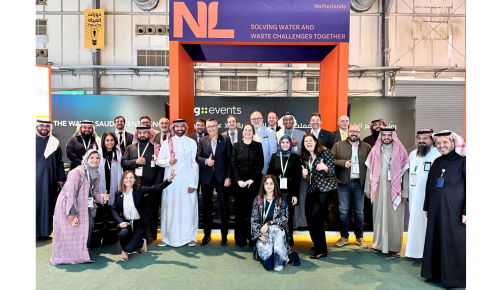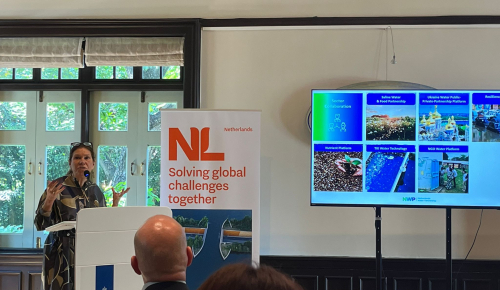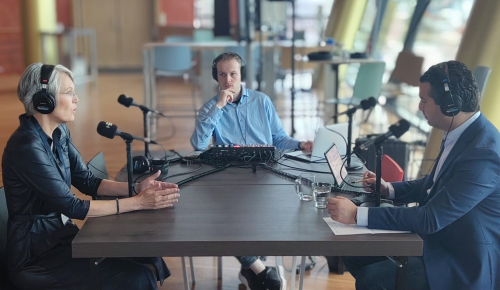News
6 May 2021Connecting the sun and sea for decentralised water supplies
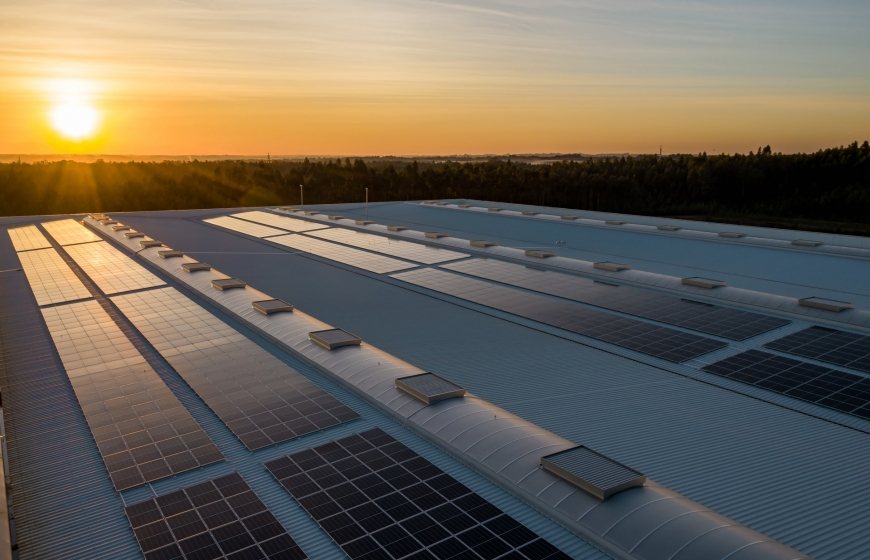
Elemental Water Makers, a new member of the Netherlands Water Partnership (NWP), connects the abundance of sunlight and seawater to provide decentralised water supply solutions. Managing Director Sid Vollebregt shares his views on how solar desalination technology is now an established option that is set to see market expansion.
‘Elemental Water Makers was founded in 2012 by two of us, engineers from the University of Technology in Delft. We are driven by understanding that water is the biggest challenge of the 21st century. We are both specialised in water treatment and sustainable energy. That led us to connect the abundance of seawater and sustainable energy through solar powered desalination.
Three key differences
The first thing we do differently is that we use energy recovery technology for reverse osmosis. We use only around one third of the energy normally required to desalinate seawater. This technology is already mainstream for large scale desalination plants, but not for small scale plants.
The second thing is that we switched to renewable energy, mostly solar energy, to provide an off-grid water supply. This makes the water supply independent and thus more resilient, and it avoids high electricity bills.
The third thing is that we make the technology easy to maintain for people in remote areas. We do a lot of work in areas of Africa that are often a 24 hour trip from the nearest town, so our solution has to include automation and remote monitoring, and, by using durable components, avoid operational issues.
Chemical-free systems
Another aspect of desalination that is often raised is the brine produced that is released back into the sea. I am happy to say that as we designed our systems to be chemical free, in our case, we are really only talking about brine only slightly saltier than the original seawater.
Mainstream desalination technologies generate a relatively high recovery ratio, so about half of the seawater is turned into freshwater. Our technology has a lower recovery ratio, so the salt concentration in the brine flow is lower. In addition, we work with small scale systems as we believe in decentralising water supplies. Working at this level means that we can always take local factors into account, such as tidal flows, mixing, depth of water, and marine life, to ensure that the brine that is returned does not have a negative impact on the environment.
The journey to establish the business
We now work in over 15 countries and do more than 20 projects a year. It took quite some effort to get here though – the water sector can be classified as somewhat risk averse. What helped us gain credibility with potential clients and partners, especially in the early stages of our journey over the past 10 years, was winning awards. These awards may be less important now, but the recognition they gave us still helps us reach a broader audience and let people know that solar desalination is a viable alternative.
Another aspect of our journey is that, a long time ago, I went to Madagascar and saw first-hand the impact of living without fresh water on people who had to use brackish water. That gave me a lot of ideas and I co-founded the Elemental Water Foundation. This certified non-profit foundation donates drinking water projects using only the sea and sun to remote water scarce communities.
Increasing scalability
Our business is international at heart. We are based in the Netherlands, but the closest project we have done commercially is around 5,000 kilometres away. We saw the need for people themselves to install and operate these systems locally and for minimising the time we spend at a location. When Covid-19 happened, we had to stay creative to overcome the challenges it presented. We accelerated the development of a ‘plug and play’ version of our technology – the Elemental Water Source – and launched it last year.
This means we can serve many more clients and it makes solutions more scalable. It also makes the technology suitable for new markets, such as emergency response and disaster relief, where a rapid response is needed.
Networking for wider success
We see that NWP has a platform of experts with a lot of knowledge and strong networks. We hope that we will be able to draw on these to bridge the gap for a technology that is in a scale-up phase. We thus joined NWP to generate more business, find suitable partners, take part in joint research, and provide solutions at a bigger scale than we currently do. While we have proprietary technology in our solutions, we believe that scaling up is about working with the right partners.
We started this company to address water scarcity by using the natural elements of the sea and sun. We want to double the number of projects we do each year and thereby double the impact that we make each year. Our goal is to help one billion people gain access to clean water using the sea and sun and become the industry standard.
Compared to five years ago, there is now much more understanding of the potential of solar desalination. It seems like the world is becoming aware of the growing water scarcity and what technology can bring. We are seeing more tenders being written for solar desalination. I am happy to see that the market is catching up with the need.’
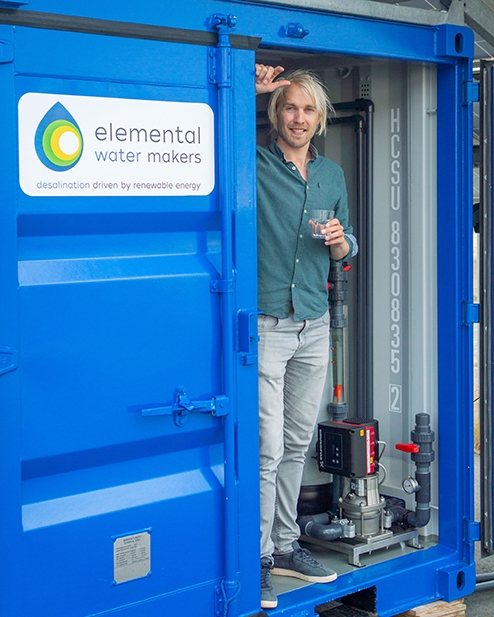
Featured NWP members: Elemental Water Makers
